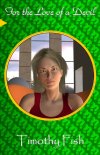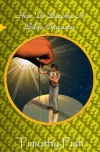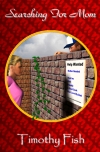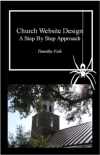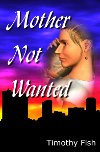
And Thy House
Extra Feature: High Res Image

History of
Cane Creek
Association
by D. F. Magruder
The Ideal Book
Written By: Timothy Fish Published: 10/8/2007
In a recent post, Richard Mabry brought up the subject of critiques versus criticizing. He also mentioned that he will be interviewing Alton Gansky. I went from there over to Amazon and checked to see that Alton Gansky has out right now. I glanced down at one of the reviews for his latest book and the reviewer said it was better than the last book which the reviewer described as being slow in the middle. I stirred all of that around in my head for a while and I began to ask myself about what I would consider to be an ideal book. If I could ask someone to critique my manuscript and tell them to tell me if it did not meet certain criteria, what would those be? I came up with a list:
- It must be believable.
- Above all else, the story must be believable within the confines of the world in which the story is set. Unless I establish how that it is possible for the character to do things that would normally be impossible, nothing should make the reader think that it is impossible or improbably that the story could occur. Solutions should not suddenly appear for no reason. If the character is in trouble, they should have to go through the process of getting out of trouble.
- The reader must connect with the characters.
- The reader must want the good guys to win and the bad guys to lose. At no point should the reader not care. Most of all, we do not want the reader to start cheering for the wrong side.
- The book must be funny.
- This is probably the hardest thing for a writer to do. Some writers would rather bring their audience to tears. There is room for that, but I want people to laugh. I may try to bring them to tears too, but I want them to laugh and I donít mean just a simple smile. I want people to laugh so hard that their teeth fall out. I want them holding their bellies and stomping their feet. I want them spewing white mocha frappuccino with extra whipped cream through their noses. Unfortunately, it is hard to get the timing right, but that doesnít make me want it any less.
- The book must drive to the end, like a stagecoach being chased by Indians.
- In the ideal book, the reader should never have a desire to put the book down. It should constantly drive forward; one event should lead into another that leads into the other, constantly pushing, and constantly driving to the end. The reader should anxious to see what is on the next page and not just the end of the book. There should be no slow sections in the book. If there are, the reader may put the book and never pick it up again.
- The reader should not guess the end.
- The reader should not be able to guess the end of the story. The story should be so different or told in such a different way that the reader is not sure how the story will end. The exception is when the story is well known story, but even then there should be enough options available to keep the reader guessing.
www.timothyfish.com
